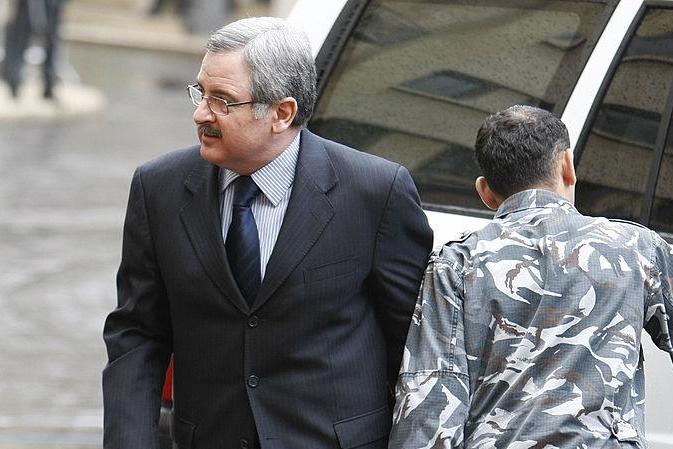Lebanon appoints man as first ever women's affairs minister
New 30-minister strong cabinet made up of 29 men heralded as marking the end of more than two years of political gridlock

Your support helps us to tell the story
From reproductive rights to climate change to Big Tech, The Independent is on the ground when the story is developing. Whether it's investigating the financials of Elon Musk's pro-Trump PAC or producing our latest documentary, 'The A Word', which shines a light on the American women fighting for reproductive rights, we know how important it is to parse out the facts from the messaging.
At such a critical moment in US history, we need reporters on the ground. Your donation allows us to keep sending journalists to speak to both sides of the story.
The Independent is trusted by Americans across the entire political spectrum. And unlike many other quality news outlets, we choose not to lock Americans out of our reporting and analysis with paywalls. We believe quality journalism should be available to everyone, paid for by those who can afford it.
Your support makes all the difference.Lebanon is on its way to ending more than two years of political deadlock after Prime Minister Saad al-Hariri announced the formation of a new 30-member strong government and cabinet.
The new government will have “at the top of its list of priorities to preserve security against the fires ravaging our region”, Mr Hariri said of the new line-up in a media conference on Sunday night. The announcements came six weeks after the country elected Christian Michel Aoun as President after two and a half years without a head of state, which had left parliament unable to pass legislation.
Mr Hariri stressed that the government would act to “preserve our country from the negative consequences of the Syrian crisis”.
Important changes include Yacoub al-Sarraf as defence minister and Cesar Abou Khalil as energy and water minister. Mr Hariri also announced the two new posts of anti-corruption minister and a minister of state for women's affairs, as well as a state secretariat for refugees.
However, the appointment of Jean Ogasapian – a male ex-army colonel from the centre-right Future Movement party – as the minister in charge of the newly created portfolio for women’s affairs has drawn criticism.
Lebanon is generally at the forefront of human rights protection in the region, and women enjoy a higher level of autonomy than in many surrounding countries, but they are still woefully underrepresented in politics. There is only one woman in the new cabinet, and four female MPs sitting in the 128-strong parliament.
The broad new government encompasses members from all main Muslim and Christian political parties except for the Christian Phalangist Party, which turned down a post. Lebanon’s political system ensures parity between Muslim and Christian representatives.
The key positions of foreign minister, finance minister and interior minister will remain in the hands of Gebran Bassil, Ali Hassan Khalil and Nouhad Machnouk respectively.
Mr Hariri was nominated to form Lebanon's next government in November, but it was expected that the process would not go smoothly thanks to his fierce opposition of Hezbollah, the influential Shia movement, which he maintains assassinated his father in 2005.
However, in a phenomenal realpolitiking move, Mr Hariri supported Hezbollah’s candidate Mr Aoun’s run at the presidency in order to secure his own return to office as prime minister.
The new government will include two ministers from Hezbollah.
It is hoped that Lebanon’s politicians will now have the ability to tackle the country’s many challenges, including a stagnant economy and the influx of approximately one million Syrian refugees in the tiny country.
The first parliamentary elections in eight years are due to be held in May 2017.
Join our commenting forum
Join thought-provoking conversations, follow other Independent readers and see their replies
Comments